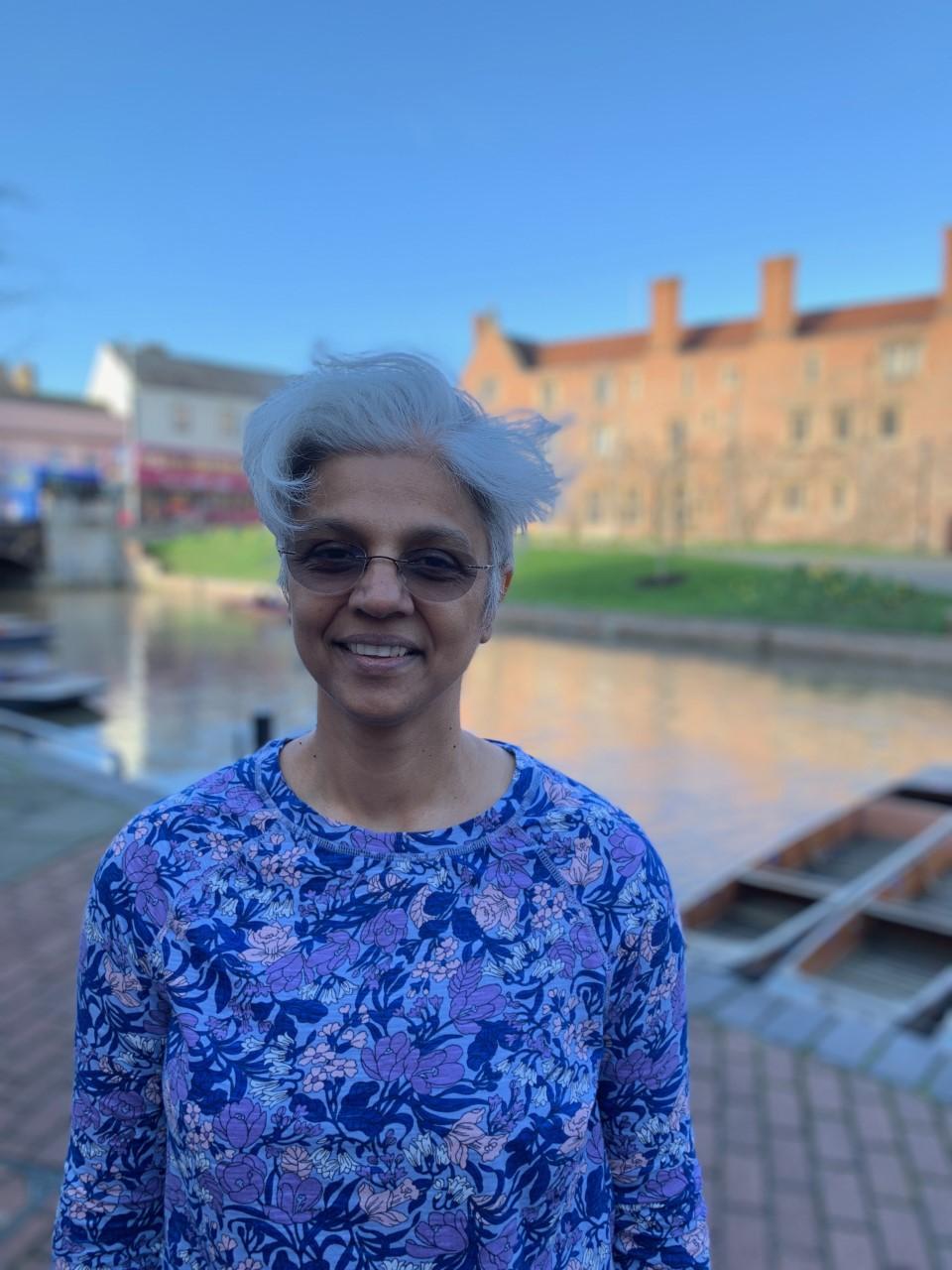
Submitted by K.L. Hlaba on Wed, 25/03/2020 - 16:14
Understanding and ensuring food security requires a good knowledge of the contexts that surround food production and consumption. To complete this series on female researchers who play vital roles in improving local and global food security, Dr Shailaja Fennell expands on how she takes an interdisciplinary approach to investigating complex food security challenges, and how her earlier studies and the support of a good academic mentor encouraged her interdisciplinary focus.
I read for a PhD in Economics specialising in long term trends in food security and its implications for gender relations in rural development at the Faculty of Economics and Politics at the University of Cambridge in the 1990s. Previously, I had completed undergraduate and graduate degrees in Economics in India, at the University of Delhi.
My current research focus is on rural-urban transitions and the implications for sustainability solutions. This focus has roots that go further back in time to my final years at school when I was studying physical and biological sciences and mathematics. I was plagued by why it was that huge advances in scientific learning during the 20th century were not adequate to solve the human and environmental challenges that societies faced at the end of the 20th century. As I was continually beset by this thorny problem, I made the decision to switch from pursuing science, my planned choice for undergraduate study, as it was increasingly becoming clear to me that the answers to why scientific discoveries were not able to solve human development challenges lay in the sphere of how people think and make decisions. This is what pushed me to take up Economics at university.
I have examined the relationship between food security, production technology and household behaviour using a range of multi-disciplinary lenses since my doctoral studies. I use research tools that draw on a range of academic subjects that have taken me from economics, through to agronomy and soil sciences, and then on to anthropology and archaeology: (i) historical and archival methods to understand the establishment of long-term patterns of cultivation and its relation to human habitation; (ii) econometric and statistical techniques to examine trends in food production and estimate instability and resilience in yields; and (iii), household surveys to identify the gendered allocation of labour and the implications for household power relations and decision making regarding production and consumption.
My current research methods build on my earlier work on the importance of finding the correct tools, and not being frightened of building bridges to other disciplines. This is crucial, as the most important aspect of understanding food security is recognising that it requires us to span a huge range of disciplines, and even be willing to unpick our established single-disciplinary tools. If ‘we are what we eat’ then food must be far more than just an input, and indeed it is correct and necessary that we situate our study of the subject at the interface between physical, natural, social and human sciences.
The desire to study numerous subjects, and particularly those that cross the science-social science boundary, was not regarded with approval either at my school or through my college years. It was only in my post-graduate years that I had an academic mentor, later my first graduate supervisor, who was equally happy to talk about new discoveries in physics and mathematics as he was to discuss the new data on agricultural production emerging out of China in the 1980s. This life-changing opportunity resulted in the writing of my first M.Phil. thesis with my amazing mentor, Professor Sukhamoy Chakravarty of the Delhi School of Economics. My thesis allowed me for the first time to openly ask questions of the particular forms of inquiry between theory and evidence in physical sciences, and how these might be reformulated in the context of human settings: in particular with regard to the study of food production in the globalising economies of India and China in the 1990s.
The importance of interdisciplinary research methodology as well as the role of transdisciplinary thinking to devise new theories that began in those early decades of research have been consolidated over recent decades at Cambridge. I am particularly delighted in the past few years to find colleagues at the Cambridge Global Food Security IRC and the Cambridge Heritage Research Centre who share my thinking on the need to traverse new patterns of analysis to explore how we might reconsider food security opportunities in the context of 21st century sustainability challenges in a climate crisis. It is within these fora that I have developed my arguments for engaging ‘orphan crops’ such as millets that can withstand higher temperatures and require less water to grow, and make a related case that in addressing our current global concerns for food security we might do well to look at the heritage aspects of plants, and examine the historical evolution of agricultural systems. One recent intellectual output of this kind of interdisciplinary research can be found in the recent publication of the first special issue of The Historical Journal, on Malthusian Moments.
Please find Shailaja's profile on our website.
Photo credit: University of Cambridge.

